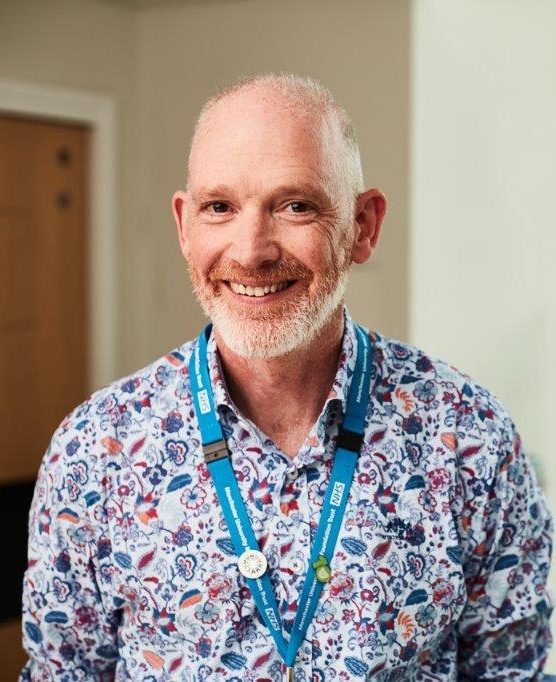Childhood Cancer Awareness Month - An Update From Rob Wynn

Professor Rob Wynn is a consultant paediatric haematologist and director of the paediatric bone marrow transplant programme at Royal Manchester Children’s Hospital. Some of his research and work is supported by charitable funds from Royal Manchester Children’s Hospital Charity. Here, he shares some insight into the incredible things happening right here in Manchester as part of Childhood Cancer Awareness Month 2021...
The first thing to know, especially if you’re a parent whose child has recently been diagnosed, is that most children with childhood cancers are cured. Only as far back as the 1960s, children diagnosed with leukaemia, for example, would most likely die. Today the statistics are very much in our favour and they will most likely be cured. And that’s down to research and innovation, which is a big part of what we do here.
We’re a large regional cancer centre so we take children from as far as Macclesfield and Barrow-in-Furness. We’re able to achieve such good outcomes because we have good medical and nursing teams in a large centre of expertise.
Childhood cancer is rare. We have around 100 kids per year in this part of the North West (excluding areas we don’t take patients from, for example Liverpool). The outcomes for these kids is good but is dependent on working with specialist teams and getting the right treatment and diagnosis as soon as possible.
In Manchester we’re able to look after everything childhood cancer related. We have all the treatments that children might need from chemotherapy through to radiation and proton beam therapy. Manchester also has one of the largest stem cell transplant and bone marrow transplant programmes in the country.
And once you have such a centre of treatment excellence, expertise in research is just as important. We’re always looking to improve the results and the ways we work. Most childhood cancers can be cured with chemotherapy but in some difficult-to-cure leukaemia, then we use bone marrow transplants.
Recently, we’ve also been using very complex and specialist treatment known as CAR T-cell therapy. This is a gene therapy treatment. We change the patient’s immune cells so that they attack their own leukaemia, and we use CAR where even bone marrow transplant has failed.
We are now also working with cord blood transplants. Cord blood is surplus blood taken from the placenta at birth – it is like a bone marrow from an adult and contains blood stem cells. Actually, our sister hospital next door, Saint Mary’s Hospital, is a cord blood harvest centre. The cord blood transplant works much like a bone marrow transplant but is shown to be achieving better results than bone marrow in curing leukaemia. The immune system in cord blood is very good at getting rid of leukaemia.
We’re now working on a new trial where we are trying to stimulate the immune system in the cord blood so it can become even better at rejecting leukaemia. This is an early phase first trial and we will see over the coming year where this will take us, but it’s a very exciting time.
When I think about childhood cancer in Manchester, I think about a city which is a centre of expertise for children where all conventional treatments are available, and newer and experimental treatments are available when those conventional treatments fail. For our kids, we are always trying to improve outcomes.
I also think it’s important to recognise that most kinds of childhood cancer treatment available in the world right now are available in Manchester. Children with a difficult to cure cancer don’t often have to go to London or America for treatments. We’re contributing to the success of cancer treatment development and we’re at the cutting edge of paediatric cancer medicine.
This means we are taking patients from all over the world. Right now (mid-2021) we have children from Croatia, Cambridge and Northern Ireland staying with us, because we are a centre for excellence. Families travel here for the expertise we are able to offer.
These days the vast majority of children with leukaemia can expect to be cured with no long-term side effects. They go on to have normal school lives, hit normal development milestones and have no learning difficulties as a result of their leukaemia.
Having said that, there can always be room for improvements in all the work that we do, and that’s particularly true in certain types of cancer, including certain brain tumours. Not all children with these types of cancer are cured so we don’t want to rest on our laurels, especially in this area.
If I look to the future, in the next 10 or 20 years that is where I would like us to be – to have made the advances we’ve made in leukaemia in other solid cancers like brain tumours.
Stay in the loop
Let’s keep in touch! Sign up here to receive the latest news about charity events and projects, and how you can help, straight to your inbox.